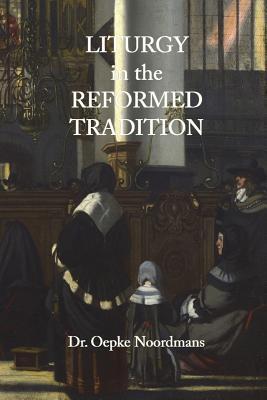There are many forms of liturgy in the contemporary church, but they are not always critically assessed. Liturgy can be viewed as a sealed encounter in which behind closed doors heaven and earth meet and participate in each other. But it can also be viewed as an exercise in acceptance of the world outside, where critical assessment is neglected in favor of socio-political engagement for what passes as "ethical" on the world stage. But true liturgy, writes Dr. Noordmans, is accomplished in the full consciousness of sin, and the sacrifice by which that sin is dealt with. There can then be no unquestioned acceptance of the world; by the same token, there is no turning away from the world in an otherworldly flight to transcendence. There is only the critical confrontation with ourselves and the world around us, in the liturgy which, as the apostle Paul emphasizes, takes place not behind church walls so much as in the "field of the world" (Matthew 13: 38). The liturgy is restrained by the eschatological realizations of original sin and the death and resurrection of the Savior, as contained in the sacraments. And the Word can then operate in the field of the world as it ought to. Reformed liturgy as it has come down through the ages is, Dr. Noordmans is convinced, a reflection of these realities. And only such a liturgy can do justice to the gospel.

There are many forms of liturgy in the contemporary church, but they are not always critically assessed. Liturgy can be viewed as a sealed encounter in which behind closed doors heaven and earth meet and participate in each other. But it can also be viewed as an exercise in acceptance of the world outside, where critical assessment is neglected in favor of socio-political engagement for what passes as "ethical" on the world stage. But true liturgy, writes Dr. Noordmans, is accomplished in the full consciousness of sin, and the sacrifice by which that sin is dealt with. There can then be no unquestioned acceptance of the world; by the same token, there is no turning away from the world in an otherworldly flight to transcendence. There is only the critical confrontation with ourselves and the world around us, in the liturgy which, as the apostle Paul emphasizes, takes place not behind church walls so much as in the "field of the world" (Matthew 13: 38). The liturgy is restrained by the eschatological realizations of original sin and the death and resurrection of the Savior, as contained in the sacraments. And the Word can then operate in the field of the world as it ought to. Reformed liturgy as it has come down through the ages is, Dr. Noordmans is convinced, a reflection of these realities. And only such a liturgy can do justice to the gospel.